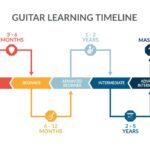Getting your learner’s permit in Virginia is the first step towards getting your driver’s license. This guide provides a comprehensive overview of the requirements, application process, and restrictions associated with a Virginia learner’s permit.
Eligibility and Application Requirements
To be eligible for a learner’s permit in Virginia, you must be at least 15 years and six months old. The application process involves two key steps:
1. Gather Necessary Documents and Fees
Before heading to the DMV, ensure you have the following:
- Completed Application: Fill out the Application for a Virginia Driver’s License (DL 1P). If under 18, a parent or legal guardian must sign it.
- Fees: Pay the $3 learner’s permit fee and the annual driver’s license fee. Refer to the DMV fee chart (DMV 201) for current rates.
- Proof of Identity: Provide one document verifying your identity.
- Proof of Legal Presence: Provide one document establishing your legal presence in the United States.
- Proof of Virginia Residency: Submit two documents confirming your Virginia residency.
- Social Security Number (SSN): Offer proof of your SSN if you have one. The DMV can verify it electronically if you know your number.
Important Document Guidelines:
- Use your full legal name on all documents; nicknames or abbreviations are unacceptable.
- Submit original documents only; copies will not be accepted.
- The DMV reserves the right to reject suspicious documents and request additional verification.
2. Pass Required Tests
At your DMV appointment, you’ll undergo:
- Vision Screening: Ensure your eyesight meets the state’s requirements.
- Knowledge Exam: Pass a two-part written test covering traffic laws and road signs.
Learner’s Permit Restrictions
Once you receive your learner’s permit, specific restrictions apply:
- Supervised Driving: You must always drive with a licensed driver seated beside you. The licensed driver must be at least 21 years old or 18 if they are your legal guardian or sibling. They need to be alert and capable of assisting you.
- Unsupervised Driving (Limited Circumstances): You can drive without supervision if you:
- Are at least 16 years and 3 months old.
- Have held your learner’s permit for nine months.
- Possess a valid Virginia Driver Training Certificate (DTS B) indicating completion of driver education, signed by a parent or guardian.
Progression to a Driver’s License
The learner’s permit holding period before obtaining a driver’s license varies based on age:
- 18 or Older: Hold a learner’s permit for at least 60 days or complete a state-approved driver education program.
- Under 18:
- Complete a state-approved driver education program.
- Hold a learner’s permit for at least nine months.
- Have a parent or guardian certify 45 hours of driving practice, including 15 hours after sunset, on the completion certificate.
Limited Duration Learner’s Permit
Individuals with temporary U.S. authorization will receive a limited duration permit valid only for their authorized stay, provided it’s 30 days or more. The permit’s expiration date matches the legal presence document’s expiry.
Additional Information for New Residents and Special Circumstances
- Out-of-State Permits: New Virginia residents with valid out-of-state learner’s permits can apply for a Virginia permit. The time accrued on the previous permit will count towards Virginia’s required holding period.
- Medical Indicators: Applicants can request indicators on their permit to alert law enforcement about medical conditions or impairments.
- Blood Type Designation: You can choose to have your blood type displayed on your permit.
By following these steps and adhering to the regulations, you’ll be well on your way to obtaining your learner’s permit and eventually your driver’s license in Virginia. Always consult the Virginia DMV website for the most up-to-date information and requirements.
